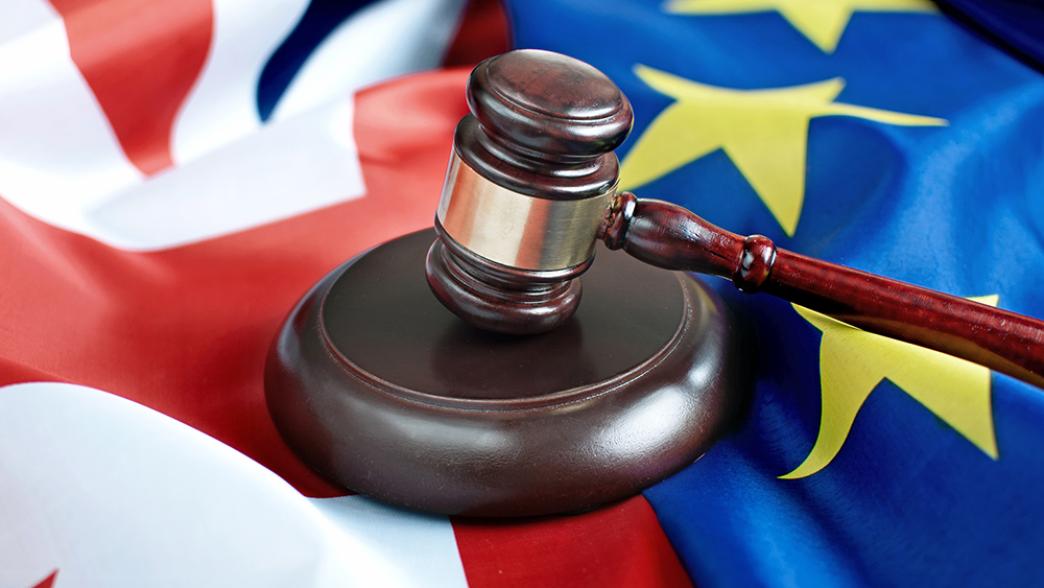
Raphael Hogarth explains why the Government’s red line on the jurisdiction of the European Court of Justice could make cooperation with EU bodies more difficult after Brexit
The role of the European Court of Justice (ECJ) after Brexit comes up in a huge range of contexts. The Repeal Bill, which the Government intends to bring forward in Parliament next week, will need to address the status of the court’s judgments in UK law.
A recent Institute for Government paper argues that the ECJ will be a live issue in the Brexit negotiations.
Debate over one of the more arcane aspects of this negotiation – the role of EU agencies, regulators and sector-specific bodies – is now becoming a flashpoint for debate about the ECJ.
The role of the European Court of Justice after Brexit
The ECJ debate was raging last week in the letters column of the FT. On July 3 Jeremy Hunt and Greg Clark wrote that “the UK would like to find a way to continue to collaborate with the EU” on the regulation of medicines after Brexit.
Two days later Keir Starmer, Labour’s Shadow Brexit Secretary, and Jonathan Ashworth, Labour’s Shadow Health Secretary wrote a letter calling for the Prime Minister to drop her “rigid approach” to the ECJ, thereby allowing Britain to retain “membership of common organisations such as the EMA (European Medicines Agency), Europol and Euratom”.
Likewise James Chapman, former Chief of Staff to the Brexit Secretary David Davis, has argued that Mrs May’s “absolutist” position on the ECJ has “hamstrung” Brexit negotiations. The Prime Minister has also come under pressure from a number of former Conservative frontbenchers to keep an “open mind” on the Court, while senior figures from both sides of the House have publicly urged the Government to “change course”.
The Government’s white paper on Brexit promised to “bring an end to the jurisdiction of the Court of Justice of the European Union in the UK”.
The court has a number of roles in the operation of EU bodies. If the Government does not want the fingerprints of the ECJ anywhere on the legal or regulatory system in which UK companies operate, it will struggle to negotiate continued participation in many of these bodies.
How the ECJ and EU bodies interact
The Government’s white paper said that the UK’s relationship with EU agencies – including the European Medicines Agency, the European Chemicals Agency (ECHA), the European Aviation Safety Agency, the European Food Safety Authority and the European (Financial Services) Supervisory Authorities – would be up for negotiation.
Yet the ECJ has oversight over these agencies in three main ways. First, the ECJ can be asked to interpret the law which creates and governs these agencies. Second, the ECJ can be asked to interpret the regulations that the agencies apply. Third, the ECJ can be asked to review the decisions of the agencies.
For instance, if a manufacturer applies to the ECHA to bring a new product to market, and is turned down, the manufacturer can seek to appeal this decision to the agency’s Board of Appeal. If this body rejects the appeal, the ECHA’s decision is subject to judicial review first by the General Court and then, on appeal, to the Court of Justice of the European Union (CJEU).
The case of European Atomic Energy Community (Euratom) is slightly different. Euratom is not an EU agency but a separate legal community with close links to the EU. When it was founded in 1957 it shared most of its institutions with the EU, now it shares all of them.
The upshot is that the ECJ interprets and applies the law which flows from the Euratom treaties, just as it interprets and applies the law that flows from the EU treaties.
There is a debate on the value of Euratom in ensuring the supply of nuclear materials and experts available to the UK. James Chapman’s argument is that the Government’s approach to the ECJ has driven UK ministers towards poor policy decisions.
The Euratom debate is shaping up as a major test of the Government’s red lines. The technical arguments for staying in the nuclear club are strong but if the Government cleaves to an absolutist position on the ECJ, it has no choice but to pull the UK out. We explore the issues in greater depth in this explainer.
It is worth noting that even since the UK’s referendum on EU membership, the British Government has confirmed it is proceeding with preparations to join a new European institution, the Unified Patent Court (UPC).
This court is being established between contracting EU member states “for the settlement of disputes relating to European patents and European patents with unitary effect”.
The UPC will not only regard ECJ decisions on relevant EU law as binding; it will also be able to make references to the ECJ on unsettled legal questions. In this case the Government seems to have adopted a less rigid position on the Court.
- Supporting document
- IfG_Brexit_Euro_Court_Justice_WEB.pdf (PDF, 175.76 KB)
- Topic
- Brexit